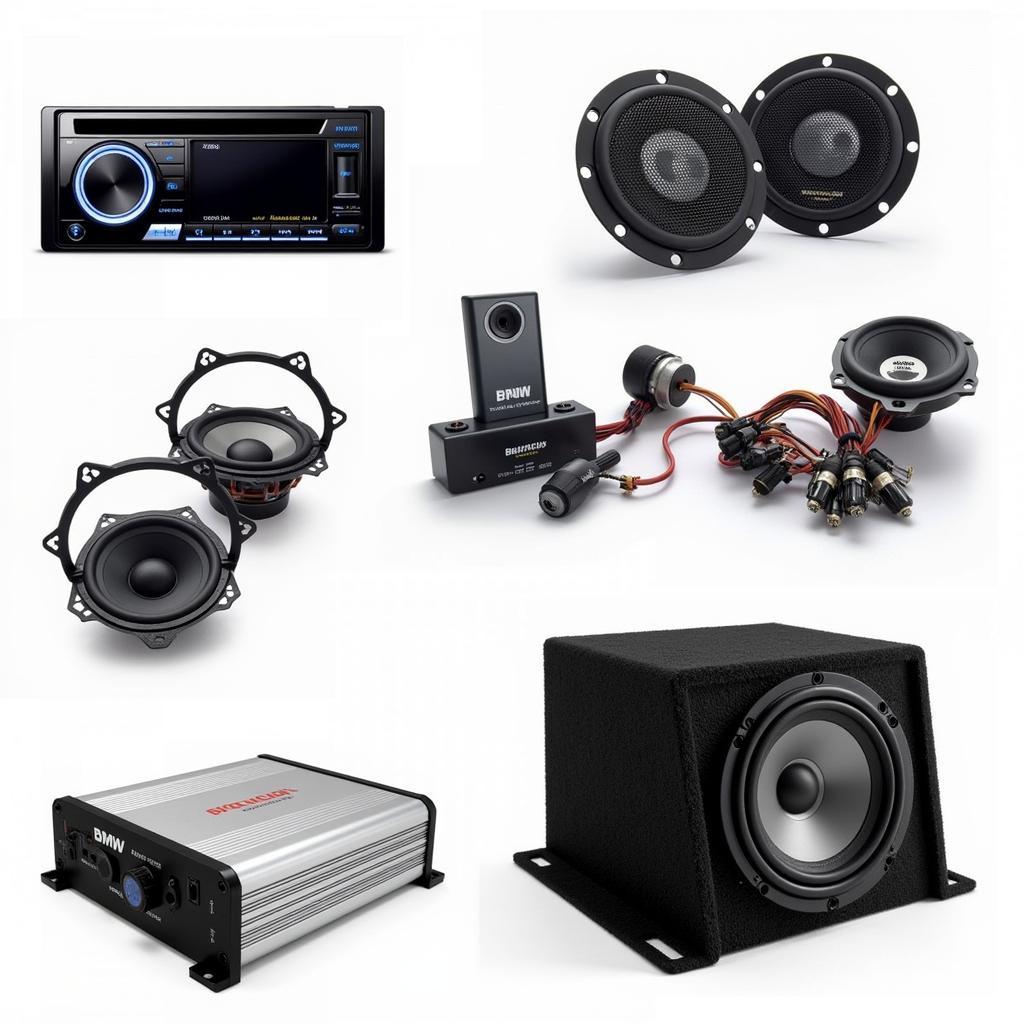A ticking or knocking sound coming from your 2010 BMW engine can be unsettling. This article will explore the common causes of this issue, ranging from simple fixes to more complex problems, and provide solutions to help you get your BMW back on the road smoothly and quietly. We’ll cover everything from low oil levels to more serious issues like faulty valvetrain components or connecting rod bearings.
Understanding the Ticking/Knocking Sound in Your 2010 BMW
Identifying the source of the noise is crucial. A light ticking sound might be normal, especially when the engine is cold. However, a persistent or loud knocking sound usually indicates a problem requiring immediate attention. The location, frequency, and intensity of the noise can help pinpoint the cause. Does the sound change with engine speed or temperature? Is it more pronounced during acceleration or idling? These are important questions to consider.
Common Causes of a Ticking/Knocking 2010 BMW Engine
Several factors can contribute to a ticking or knocking sound in your 2010 BMW engine. Let’s explore some of the most frequent culprits:
-
Low Oil Level: Insufficient lubrication can lead to metal-on-metal contact, resulting in a ticking or knocking sound. Check your oil level regularly and top it off if needed. Remember, low oil pressure can cause significant engine damage.
-
Faulty Valvetrain Components: Worn hydraulic lifters, rocker arms, or valves can create a ticking noise, especially at idle. This is more common in higher-mileage engines.
-
Worn Connecting Rod Bearings: A more serious issue, worn connecting rod bearings often produce a louder knocking sound that gets worse under load. This requires immediate attention to prevent catastrophic engine failure.
-
Timing Chain Issues: A stretched or worn timing chain can cause a rattling or knocking sound, particularly noticeable at startup.
-
Fuel Injector Problems: A malfunctioning fuel injector can sometimes create a ticking sound. This is often accompanied by other symptoms like rough idling or reduced fuel efficiency.
-
Exhaust Leaks: While less common, exhaust leaks can sometimes manifest as a ticking sound. This is usually easier to diagnose as the sound will be coming from the exhaust system rather than the engine itself.
Diagnosing the Problem
Accurately diagnosing the source of the ticking or knocking sound is critical for effective repair. While some issues, like low oil, can be easily checked, others require specialized diagnostic tools and expertise.
-
Visual Inspection: Start by visually inspecting the engine compartment for any obvious signs of leaks, loose components, or damage.
-
Oil Pressure Test: A low oil pressure reading confirms insufficient lubrication and could indicate a problem with the oil pump or worn bearings.
-
Cylinder Compression Test: This test can reveal problems with the piston rings, valves, or head gasket.
-
Diagnostic Scan: A professional diagnostic scan can retrieve fault codes stored in the vehicle’s computer, providing valuable clues about the source of the problem.
Solutions and Repairs
Once the cause of the ticking or knocking sound is identified, the appropriate repairs can be carried out. These can range from simple DIY fixes to more complex procedures requiring professional assistance.
-
Oil Change and Top-Up: If low oil is the culprit, an oil change and top-up will usually resolve the issue. Regular oil changes are crucial for maintaining engine health.
-
Valvetrain Component Replacement: Worn lifters, rocker arms, or valves need to be replaced to eliminate the ticking noise.
-
Connecting Rod Bearing Replacement: This is a major repair requiring engine disassembly. It’s crucial to address this promptly to prevent further damage.
-
Timing Chain Replacement: A stretched or damaged timing chain requires replacement. This is a complex procedure best left to experienced mechanics.
-
Fuel Injector Cleaning or Replacement: Cleaning or replacing a faulty fuel injector can restore smooth engine operation.
Preventing Future Issues
Regular maintenance is key to preventing engine problems and prolonging the life of your 2010 BMW. Follow the manufacturer’s recommended service intervals and address any unusual sounds promptly.
Conclusion
A ticking or knocking sound in your 2010 BMW engine should not be ignored. Addressing the problem quickly can prevent further damage and costly repairs. By understanding the potential causes and utilizing appropriate diagnostic methods, you can ensure your BMW runs smoothly for years to come. Remember to consult a qualified mechanic for any complex repairs.
FAQ
- What is the most common cause of a ticking sound in a BMW engine? Low oil levels or faulty valvetrain components are often the culprits.
- How serious is a knocking sound in my engine? A knocking sound can indicate a serious problem like worn connecting rod bearings, requiring immediate attention.
- Can I drive my BMW with a ticking engine? While a slight ticking might be acceptable, a persistent or loud ticking/knocking warrants immediate inspection.
- How much does it cost to fix a ticking/knocking engine? The cost varies depending on the cause and complexity of the repair.
- How can I prevent engine ticking/knocking? Regular maintenance, including timely oil changes, is crucial for preventing these issues.
- What should I do if I hear a ticking/knocking sound? Don’t ignore it. Consult a qualified mechanic for diagnosis and repair.
- Can a ticking sound be related to the exhaust system? Yes, sometimes exhaust leaks can mimic a ticking sound.
Need help? Contact us via Whatsapp: +1 (641) 206-8880, Email: CARDIAGTECH[email protected] or visit us at 276 Reock St, City of Orange, NJ 07050, United States. We offer 24/7 customer support.


